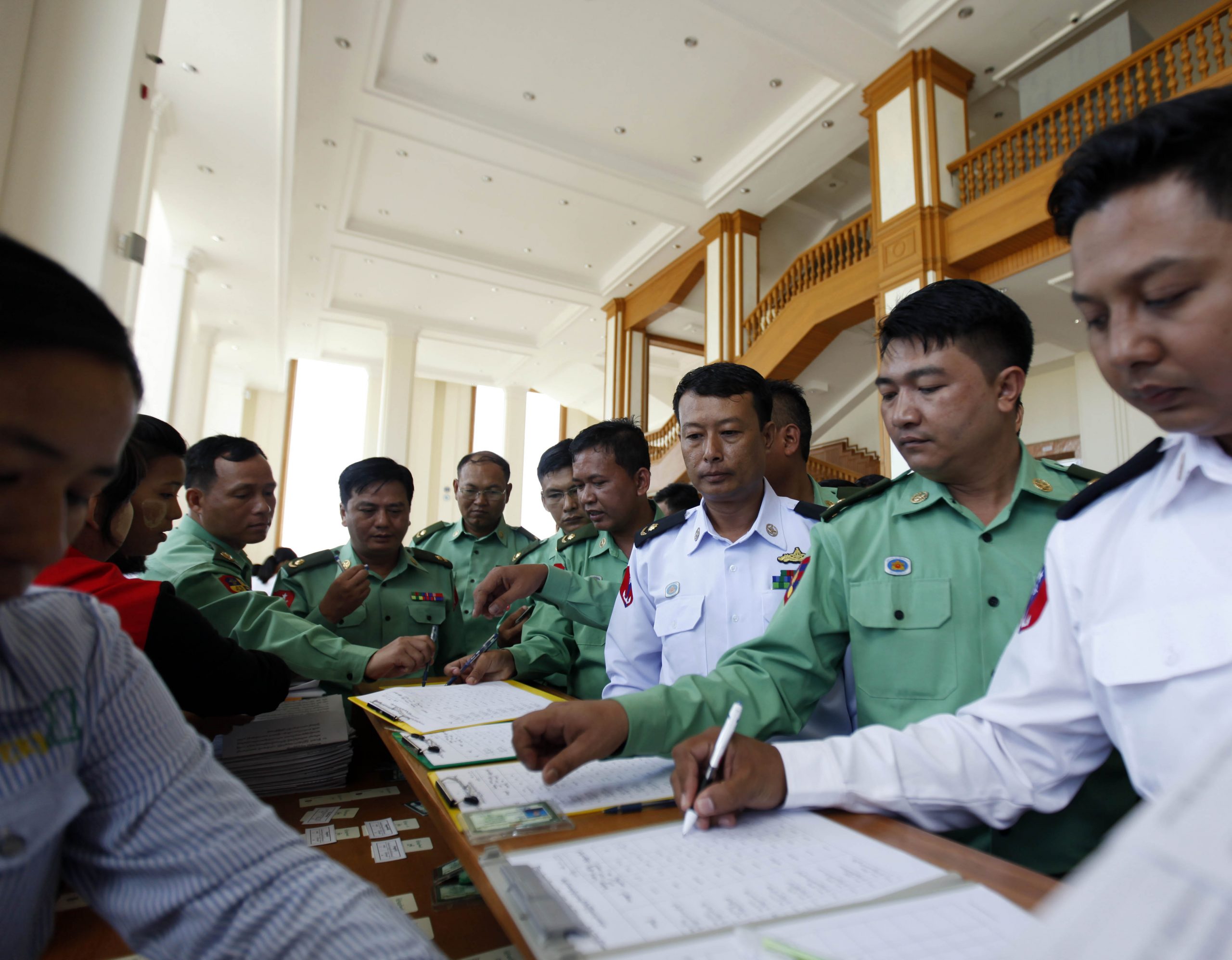The son-in-law of Burma’s former junta chief has been selected among the military appointed representatives that will sit in next month’s new-look legislatures.
The Union Election Commission on 18 January announced the names of military appointed representatives to the upper and lower houses of Burma’s Union Parliament, as well as state and regional legislatures. All will convene on 1 February, having been drastically reshaped by an historic election held in November 2015.
Among the names is Brig. Gen. Thein Naing, who is married to Khin Pyone Shwe, the daughter of Rt. Gen. Than Shwe. Thein Naing has been appointed to Rangoon Division parliament.
The office of the defence commander-in-chief selected 56 servicemen including a general to the bicameral parliament’s upper house and 110 to the lower house including two generals.
Maj. Gen. Tauk Tun is the most senior officer appointed to the lower house and Maj. Gen. Than Soe to the upper house.
There are 220 military appointees to regional parliaments including Thein Naing, the only general dispatched to a regional legislative assembly. Thein Naing is the former commander of Mingalardon air base and served in the office of Burma’s air commander-in-chief in 2010.
Burma’s 2008 Constitution permits the military to reserve a quarter of parliamentary seats for unelected servicemen. However the number of solider MPs is estimated to be slightly more than 25 percent in Burma’s second parliament, as voting last year did not take place in certain areas across the country.
Lt. Col. Soe Soe Myint and Lt. Col. San Thida Khin will remain the only female representatives among the military contingent in Naypyidaw. The pair retained their legislative postings after being installed to the lower house in 2014. The Burmese army opened officer training to women in 2012.
A female solider will represent the military in a regional parliament for the first time, after Maj. Hnin Yu Kyaw was appointed to Rangoon Division’s legislature.
[related]
Despite the weight of unelected military representatives, the National League for Democracy, led by Aung San Suu Kyi, will maintain a healthy majority over both houses in Naypyidaw and Mon, Karen and Karenni regional parliaments. Suu Kyi captured 77 percent of the nationwide vote for her party last year.
However, the military will retain control over three key security ministries— defence, border affairs and home affairs. All three are controlled by the National Defence and Security Council. The council is made up of the president and vice-presidents, the commander-in-chief and his deputy, house speakers, and the ministers for defence, foreign affairs, home affairs, and border affairs.
The constitution entitles the military to appoint six of those offices while the NLD will appoint the remaining five.



